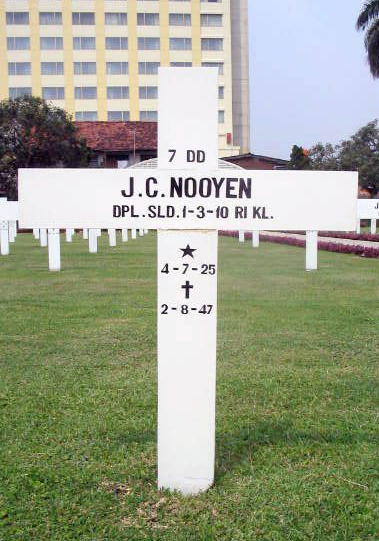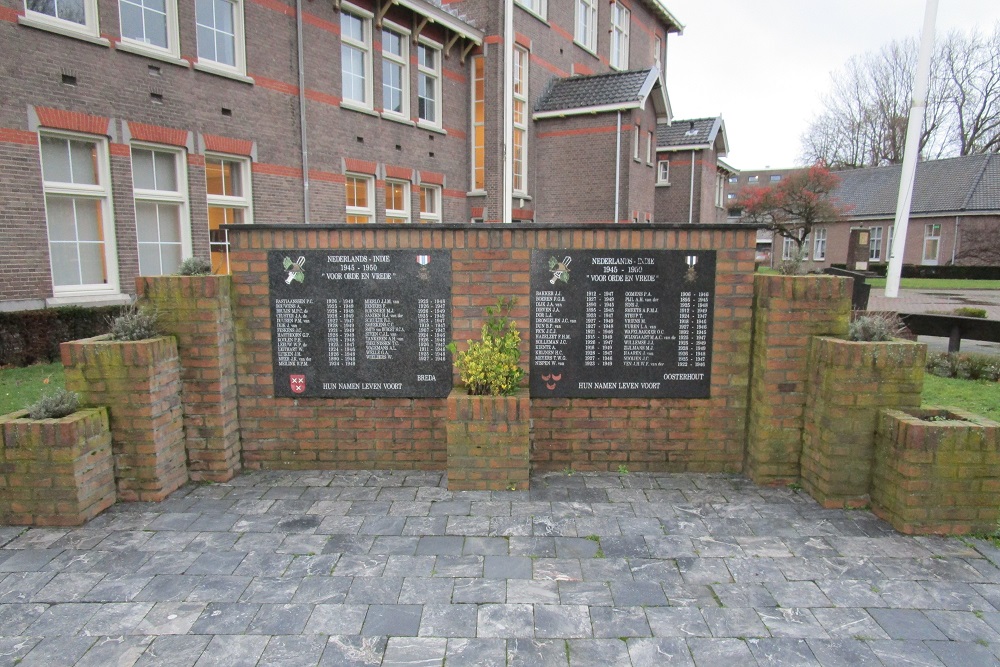Nooijen, Johannes Cornelis
- Date of birth:
- July 4th, 1925 (Oosterhout/North Brabant, Netherlands)
- Date of death:
- August 2nd, 1947 (Tangerang/Tjibogo, Dutch Indies)
- Buried on:
- Dutch War Cemetery Menteng Pulo
Plot: IV. Row: 133. Grave: 7DD. - Nationality:
- Dutch
Biography
Dpl.Sld.1-3-10 RI
Johannes was born on 4 July 1925 in Oosterhout, the son of Cornelis Nooijen and Elisabeth Venus. He lived in Breda, where he worked as a carpenter until he was called up for military service. In 1946, he joined the Royal Netherlands Army in Vught and was assigned to the 3-10 Infantry Regiment as a soldier.
Due to the outbreak of revolutionary violence in the Indonesian struggle for independence, Johannes was sent to the Dutch East Indies to complete his military service and help restore peace and colonial authority. After a short training period, he left for the East on 1 October 1946 as part of the 7 December Division on board the Sloterdijk.
Before the end of the month, Johannes went ashore in Batavia. Despite the short training and light armament, Johannes' battalion was deployed as a full infantry unit, mainly to guard the palace of Lieutenant Governor-General Huib van Mook, the residence of army commander S.H. Spoor, the Struiswijk prison and the petrol distribution centre in Senen. The battalion was also deployed to escort Japanese prisoners of war. After the battalion was disbanded in March, Johannes was assigned to the 3rd Battalion of the 3rd Infantry Regiment.
After the battalion was transferred to Tangerang in Banten, in the far west of Java, in March 1947, Johannes was deployed there from June onwards in intensive cleansing operations.
These were stepped up even further during the First Police Action from 21 July to 4 August. During the Action, Johannes and sixteen comrades were forced to take part in a patrol to search for his previously lost ammunition belt. During the patrol, the group was ambushed and Johannes was the only one taken prisoner and taken away by the revolutionaries.
What exactly happened to him after that is unknown. Six months later, his body was found by the local population in a well in Tjibogo, just south of Tangerang. His date of death was determined to be 2 August 1947; he was 22 years old. Johannes found his final resting place at the Dutch military cemetery Menteng Pulo in Jakarta.
Do you have more information about this person? Inform us!



